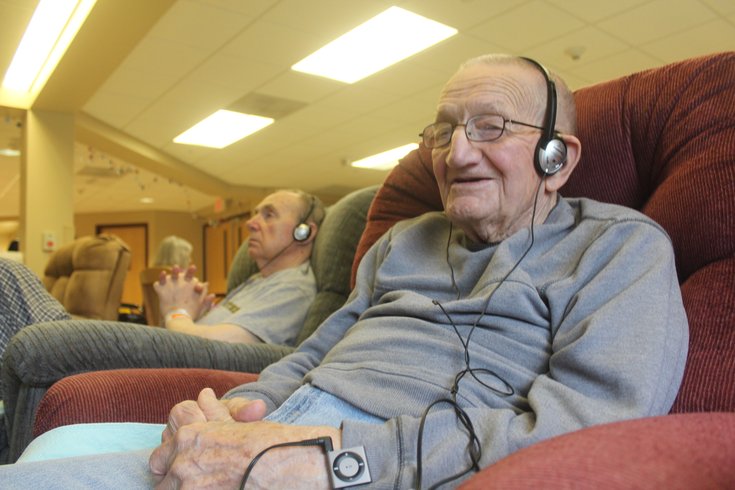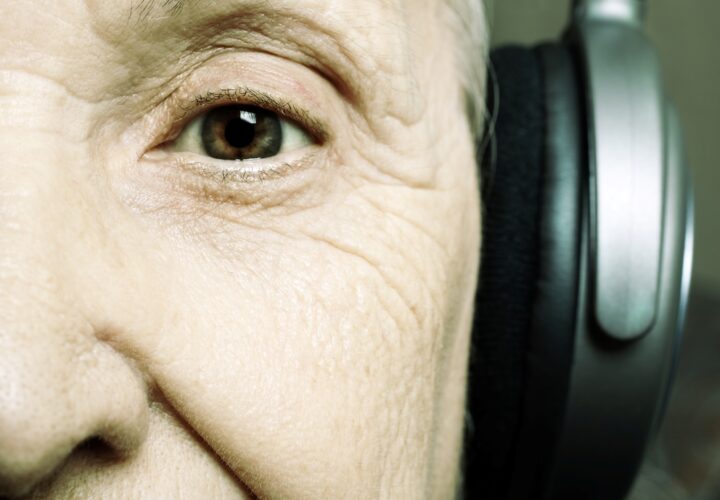Music offers a host of benefits for Alzheimers patients in varying stages of the disease. Often after months or even years of not speaking at all they begin to talk again become more social and seem more engaged by their surroundings.
 What Is Music Therapy And How Can It Help Alzheimer S
What Is Music Therapy And How Can It Help Alzheimer S
Music Therapy Impacts Both Alzheimers Patients and Caregivers By Being Patient August 17th 2017 The connection between music and Alzheimers is the subject of an increasing number of studiessome early evidence even points to music as a potential therapeutic treatment for the disease.

Alzheimer's music therapy. Conclusions In the sample studied music therapy improved some cognitive psychological and behavioural alterations in patients with Alzheimer disease. Music can be powerful. Music therapy holds some untapped potential when it comes to treatment for Alzheimers and dementia-related diseases.
Music Therapy Art Therapy Pet Therapy and More Art and music therapy can improve the quality of life for people with Alzheimers disease. For people living with dementia music can allow for self-expression and engagement. Music therapists who work with Alzheimers patients describe seeing people wake up when the sounds of loved and familiar music fills their heads.
Studies show music therapy improves a patients focus improves their ability to communicate with those close to them and may lower the dependence on psychiatric drugs. Ruth Drew director of information and support services for the Alzheimers Association says music therapy is the use of music to help address physical emotional behavioral and social needs of an individual. Combining music therapy with.
Music can be a useful way to change somebodys mood especially during personal care. Studies have shown music may reduce agitation and improve behavioral issues that are common in the middle-stages of the disease. Some begin to remember names long forgotten.
For instance if a person diagnosed with dementia resists your efforts to help them get dressed playing soothing music or a favourite song can help lessen any distress. Music can also benefit caregivers by reducing anxiety and distress lightening the mood and providing a way to connect with loved ones who have Alzheimers disease especially those who have difficulty communicating. Reduce anxiety and depression.
Music tasks can be used to assess cognitive ability in people with Alzheimers Disease. In the sample studied music therapy improved some cognitive psychological and behavioural alterations in patients with Alzheimer disease. Music helps people with dementia express feelings and ideas.
Music therapy helps to alleviate isolation and the symptoms for those living with dementia by helping to unlock special memories reconnect with their loved ones and express emotions and feelings that other forms of communication cannot even if the individual is no longer able to speak or respond to other peoples words. Many of us enjoy and benefit from listening to music and this often does not change after someone develops Alzheimers. Individuals in the late stages of dementia respond to and interact with music.
Even in the late-stages of Alzheimers a person may be able to tap a beat or sing lyrics to a song from childhood. The usefulness of this programme in the field of dementia is beginning to be recognised by the scientific community since studies have reported physical cognitive and psychological benefits. Music interventions have been widely adopted as a potential non-pharmacological therapy for patients with Alzheimers disease AD to treat cognitive andor behavioral symptoms of the disease.
Combining music therapy with dance therapy to improve motor and functional impairment would be an interesting line of research. Research studies have demonstrated that music is an effective way to provide meaningful activities reduce challenging behaviors and decrease feelings of anxiety and depression in Alzheimers. Music therapy is one of the types of active ageing programmes which are offered to elderly people.
Music is effective in decreasing the frequency of agitated and aggressive behaviors for individuals diagnosed with Alzheimers Disease and related dementias. Evidence shows that using music therapy whether it is simply listening singing or something else can have a number of positive health effects for dementia patients. In spite of the prevalence of such therapies evidence for their effectiveness report mixed results in the literature.
 Wednesday Workshop Sensations Of Song The Benefits Of Music Therapy In Alzheimer S
Wednesday Workshop Sensations Of Song The Benefits Of Music Therapy In Alzheimer S
 Alive Inside How The Magic Of Music Proves Therapeutic For Patients With Alzheimer S And Dementia Youtube
Alive Inside How The Magic Of Music Proves Therapeutic For Patients With Alzheimer S And Dementia Youtube
 Music Art Therapy Alzheimer S Dementia Alzheimer S Association
Music Art Therapy Alzheimer S Dementia Alzheimer S Association
 Music Therapy For Alzheimer S Disease Symphony Senior Living
Music Therapy For Alzheimer S Disease Symphony Senior Living
 Wednesday Workshop Benefits Of Music Therapy In Alzheimers
Wednesday Workshop Benefits Of Music Therapy In Alzheimers
Music Therapy For Alzheimer S Patients Shield Healthcare
Music And Memory Brings Music Therapy To Nursing Home Residents Muncie Journal
 Music Therapy Dementia And Alzheimer S Disease Bethany Seniors
Music Therapy Dementia And Alzheimer S Disease Bethany Seniors
 Music Therapy Program Aids Patients With Alzheimer S Phillyvoice
Music Therapy Program Aids Patients With Alzheimer S Phillyvoice
Close The Sidebar Home News Trends Tech Science Digital Misc Contest Close The Sidebar How Music Therapy Is Helping Alzheimer And Dementia Patients The Music Therapy Is Helping The Patients Of Alzheimer And Dementia As It Has The Ability To Change
 Music And Alzheimer S How Music Therapy Helps Alzheimer S Patients
Music And Alzheimer S How Music Therapy Helps Alzheimer S Patients
 Music Therapy For Alzheimer S And Dementia I Advance Senior Care
Music Therapy For Alzheimer S And Dementia I Advance Senior Care
 Music Therapy Helps Alzheimer S Patients Live In The Moment No Longer Me Observer Reporter Com
Music Therapy Helps Alzheimer S Patients Live In The Moment No Longer Me Observer Reporter Com
 Music Therapy For Dementia Patients Elite Learning
Music Therapy For Dementia Patients Elite Learning

No comments:
Post a Comment
Note: Only a member of this blog may post a comment.